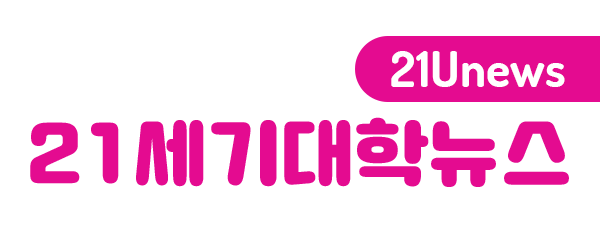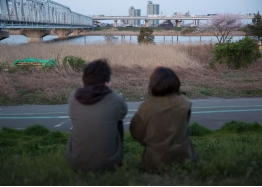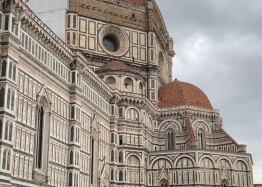Nowadays, students’ demonstrations to make ‘half reduction of registration fee’ come true, are in the peak. It was a presidential election pledge of present Lee Myung-Bak government, extreme conservative rightist regime, has completely been ignored, causing people’s severe wrath. Needless to say about university students’ participation, even high school students, parents of them and ordinary citizens are gathering everyday with candlelights, in front of Gwanghwamun, which is the core of politics in Seoul.
On 10th June, there was a large scale demonstration commemorating the people’s uprising in June 10th, about 50 thousands of citizens and students participated. This demonstration will take place every day until the end of this month. Meanwhile, the police banned the peaceful candlelight demonstration, demanding to follow the pledges as a just right of citizens, and even notified to the police in advance to the demonstrations. On May 29th, the police took 73 university students to the police station. As a countermove of this, progressive or reformist politicians including Lee Jung-Hee, the representative of Korean Democratic Labour Party, and the intellectuals are participating the demonstrations, the citizens support them, sending snacks to the places.
These situations prove that the registration fee in South Corea is abnormally high. According to the OECD’s statement last year, annual registration fee in South Corea is about 6000 euros and secondly high following USA. However, governments’ support is about half of the average of the OECD’s, the students and parents have to cover 78 percents of the registration fee. In addition, living expenses and text book expenses etc. are making numerous students and parents fall into debtors. The average of bringing one child until entering university reaches about 17000 euros.
Education in South Corea has many problems in addition to the entering fee. First of all, elementary, middle and high school which should make an effort on building an upright character and teaching various subjects, only concentrate on preparing for entrance exam. As a result, some non-major subjects in entering exam, such as ethics, history, arts and physical educations, are being ignored and much more costly private educations are prevailing. These distorted education appears more clearly in university educations, students only concentrate on raising the grades of TOEIC or TOFLE and preparing lawyer exam or public officials recruiting exam. In this sense, scornful satire, saying that we have only two subjects in universities, TOEIC and TOEFL department and department of lawyer exam, is prevailing in all universities in the country.
In addition, universities are thoroughly graded, students from the regions have little opportunity for employment, except famous universities in Seoul, which is the capital city of South Corea. As we can see, education in university has been ruined and the registration fee is keeling price, but entering university is inevitable choice in South Corea. Without a diploma, you can never have good profession or working condition, and if you have a job fortunately, disadvantage in salary and promotion would be huge. South Corean people actually well-known for high aspiration in education, but these situations in university education have another reasons more than that.
There is another dreadful obstacle, unemployment, for the youths in South Corea in addition to these problems in education. The unemployed youths in South Corea reaches almost one million and became one of the biggest reason of various social problem including deviation and suiciding. And it is a big problem that youth unemployment is connected to the non-regular workers’ problem reaching 10 millions. In addition, there are no social security system for unemployment, we don‘t have unemployment wages, and the lives of the unemployed have no difference with those of the homeless because of high expenses of education, medical, housing. In fact, the percentage of the unemployed, the homeless and the suicides have risen radically after the East Asian economic crisis in 1997 and the global financial crisis in 2008.
It is so natural that the youths and university students in South Corea have antipathy towards neo-liberalism and present conservative government, with these reason Consequently, in the regional election in 2010 and the by-elections in 2011, through active participation, the youths and university students made a judgement to the conservative government and elected many progressive or reformist candidates. In South Corea, we have wide conviction, if the youths and university students take action, we can change the society.
The students’ movement in South Corea has its roots in Japanese colonial period in 1910s, was vitalised right after the independence in 1945, and have won people’s trust and support through the struggles against military dictatorship regimes continued for 30 years, from 1961 to 1992. Eventually, students’ movement acted a decisive role in victory of June 10th Uprising, dealing a fatal blow to the military dictatorship regime in 1987, and after that, we won continuous victory, including establishment of Countrywide University Students’ Representatives Association (CUSRA). However, Kim Young-Sam dictatorship regime appeared, cruelly repressed the Korean Federation of Student Councils (KFSC), established in 1993 succeeding, using the National Security Law (NSL) which is an anti-democracy and anti-reunification law, as an outcome of this, students’ movement has been exceedingly weakened for more than 15 years. Now we have newly established Korean Students’ Union (KSU) in 2005 instead the Korean Federation of Students’ Councils, which is now intensely weakened and was labelled as a organisation benefiting the enemy, North Corea. Because they just have insisted peaceful reunification of Corea by federation. However, compared to the past powerful days, this new organisation’s activities for representing the rights and interests of students and establishing democracy and independent reunification, are much insufficient.
One of the biggest weak points in South Corean students’ movement is, we do not much have relations as international solidarity is concerned. Because of the difficult situations, South Corean students’ movement only concentrate on domestic issues, rarely establish international solidarity. We can say Rim Soo-Kyeong’s participation in 13th World Youths and Students Festival - Pyongyang in the 30th June, 1989, as a representative of CUSRA of South Corea, is a representative case in international solidarity. And we planned to participate in next festival hosted in Havana, however it was unfortunately failed. Rim Soo-Kyeong came back Seoul through Panmunjom, the symbol of division, immediately arrested and have been imprisoned for a long time.
Thus, the meetings, Corean and Cypriot university students are preparing and the participation from both divided countries, has great significance. I think the youths and students have to be a vanguard in pioneering the movement for reunification and progress, as a driving motive force leading the whole people, the master of reunification and progress. I convince our victory seeing the bright eyes of the youths and students in both countries, not forgetting the suffer of division and struggling to achieve the new and better advanced world. When we, the youths and students in both countries, establish strong solidarity and be at the head of practicing the cause of reunification and progress, we can proudly be in the stage of history, as a master of our country and our future.
Min-Ji Kim
댓글 0
| 번호 | 제목 | 날짜 |
|---|---|---|
| 5 |
[보도자료] “쿠바, 베네수엘라 등 진보집권경험을 말한다”
| 2012.09.23 |
| 4 |
[청소년부문행사] “맑스가 뭐에요?”
| 2012.09.23 |
| 3 |
‘민중주권’에 대해 세계적인 석학들과 토론하는 ‘제4회 코리아국제포럼’ 개막
| 2012.09.23 |
| 2 | 대학생·청년들의 기고를 받습니다 | 2012.08.31 |
| » | Situations of University Students in South Corea and Tasks in Students Movement | 2012.08.31 |










